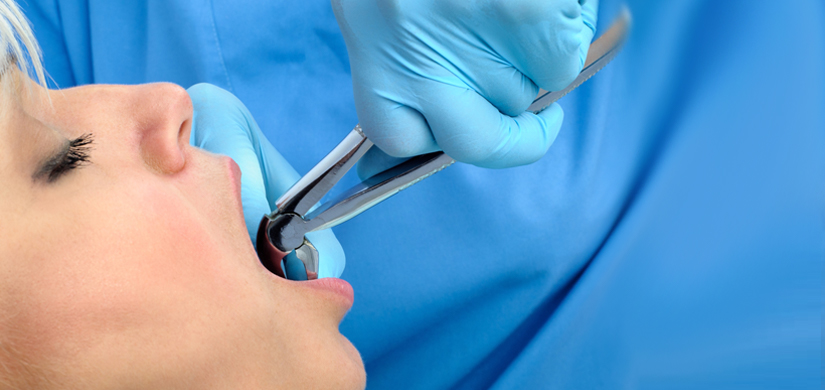In some cases, it may be in the best interest of a patient’s oral health to remove a tooth. People receive teeth extractions for many reasons, including serious tooth decay, severe damage, advanced gum disease, poor tooth positioning and pre-orthodontic treatment. At NK Family Dental, our goal is to make sure that the tooth extraction process goes as smoothly as possible so that the patient can focus on improving their oral health after the procedure.
When conducting a tooth extraction, we generally apply a local anesthetic around the tooth. This is done to numb the area and to prevent the patient from experiencing pain or discomfort. We may also provide oral sedation for the patient as a way of helping them remain calm during treatment.
Thanks to the local anesthetic, it is very unlikely that the patient will experience any pain as the tooth is being pulled from its socket; however, it is very common to feel some pressure in this area during this time.
The immediate goal after a tooth has been removed is to form a blood clot at the extraction site. This initiates healing, while also stopping any blood loss. The patient will bite down on a gauze pad for roughly 30 to 45 minutes until a blood clot forms. From there, it is very important that the patient does not disturb the blood clot in any way. This means that the patient should avoid using a straw, rinsing vigorously, smoking, consuming drugs or alcohol and partaking in intense exercise for at least 24 hours after receiving a tooth extraction procedure.
After the procedure, we recommend using an ice pack on the outer cheek near the extraction site. This will reduce swelling and provide comfort. Generally speaking, patients are able to continue with their usual brushing and flossing practices just 24 hours after the procedure. In the event that the patient experiences intense pain or heavy bleeding at any point following a tooth extraction, they should contact us as quickly as possible.
Wisdom Teeth Removal
NK Family Dental also offers wisdom teeth removal. Wisdom teeth, which are sometimes called third molars, typically develop when a person is in their late teens or early twenties. While it is estimated that about one in five people will ultimately keep their wisdom teeth, most people will have them removed because of the problems that they can cause for other teeth.
A wisdom teeth removal procedure is generally more intensive than other types of teeth extractions. In most situations, a patient will require about a week’s worth of recovery time in order to become fully healed. During the healing process, it is recommended that the patient gets plenty of rest, drinks plenty of fluids and chews only soft foods.


